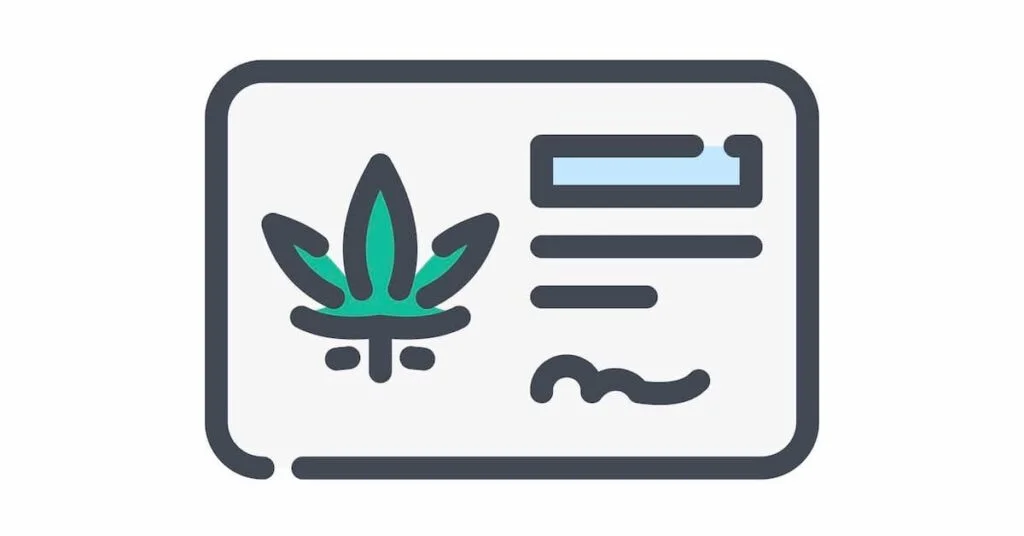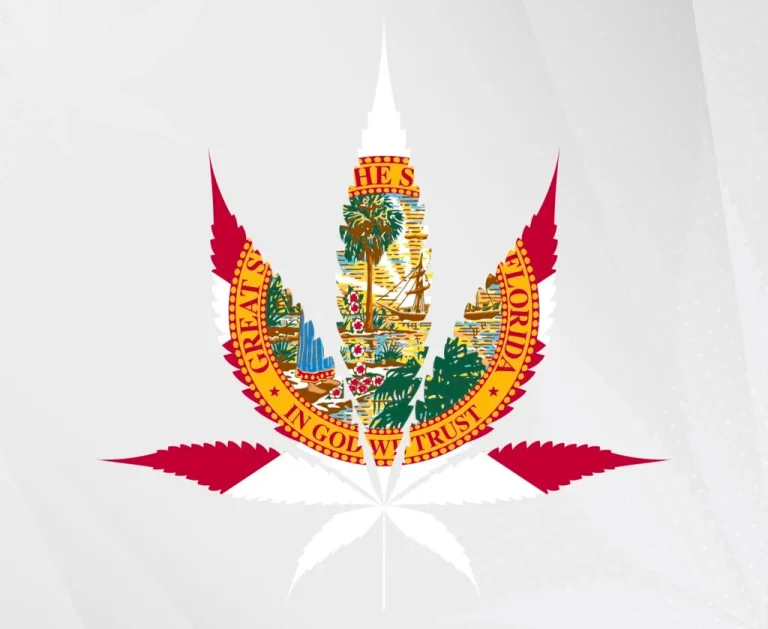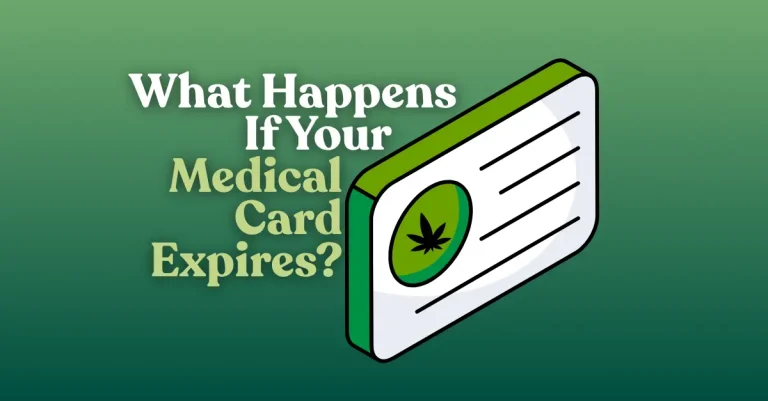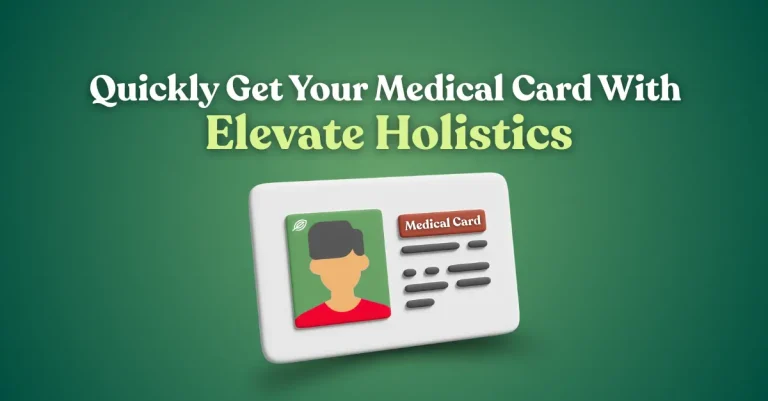Table of Contents
ToggleWhen thinking about registering for your state’s medical marijuana program, you might have a few (okay, a lot) questions running through your mind. One of these questions, frequently, is “What does a medical marijuana card look like?”
Trying to picture an MMJ card without a clear understanding of its appearance sure can make your mind wander. Let’s talk a little about what a medical card looks like and how you’ll use it to give you a good idea of what you can expect from your state.
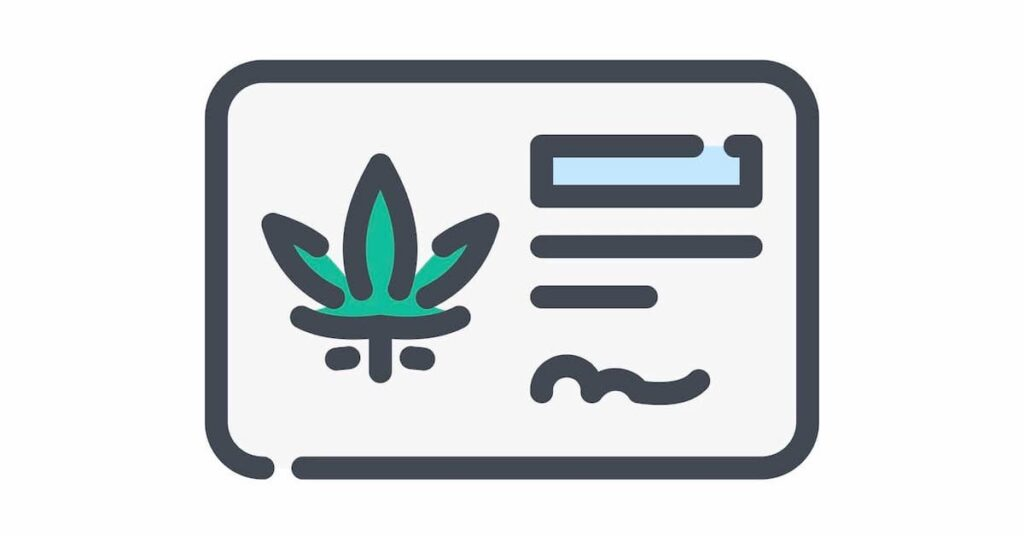
Getting MMJ: What Does a Medical Marijuana Card Look Like?
It’s essential to establish that every state’s medical marijuana card will look a little different. In fact, some states don’t even require a physical medical card anymore: everything’s digital! Regardless of the colors or badging on your MMJ card, their information should all be relatively similar.
Let’s start with what the front of your medical marijuana card could look like.
Your card makes weed affordable again.
The Front
On the front of your state’s MMJ card is where the license will display your photo. Having a large, clear image of the MMJ patient makes it much easier for dispensary workers and other health professionals to ensure that you are the same person using the card as the photo depicts.
Along with your picture, you will also find:
- a patient ID number
- your full name
- address
- date of birth
You can also expect to find a “date issued” and “date expired” section on your medical marijuana card, showing how long it’s valid. The length of time your card is good for varies depending on your state and medical condition, so it’s important to know this information.
There is a chance you may come across something on your card stating whether or not you are authorized to cultivate cannabis in your state. Some medical patients must receive special permission to do so, and thus, it will appear on the medical card itself. In other states, at-home cultivation is open for all consumers, while it isn’t legal for any in others. Always check out the cannabis laws in your states to ensure you’re following rules lawfully.
The Back
When you flip your card over, you will come across a very noticeable magnetic swipe strip on the back, similar to the one you see on your credit or debit card. This swipe is here if your state requires budtenders to swipe your card upon entry to the dispensary or with a purchase. Swiping the card allows for all of your necessary information to pop up on their end, ensuring you’re a proper patient. Sometimes, you can find this swipe on the front of the card, but, again, it depends on your state.
Other than this, you’ll likely only see warnings or legal labels on the back of your medical marijuana card. These are just technical statements that medical marijuana agencies must apply to adhere to state laws.
States with Physical Medical Marijuana Cards
Depending on which US state you live in, accessing legal weed can be as easy as swiping a card or punching some digital numbers into an online database.
Some states provide physical registry cards for extra security and ease of access — but don’t worry if yours doesn’t, the up-to-date digital registries are just like having an ID card!
Here’s a breakdown of the states with a physical MMJ and those with digital registries:
- Alabama
- Alaska
- Arizona
- Arkansas
- California
- Colorado
- Connecticut
- Delaware
- Florida
- Hawaii
- Louisiana – faxed certificate – a copy can be obtained from your pharmacist
- Maine – paper certificate only
- Maryland
- Massachusetts
- Michigan
- Montana
- Nevada
- New Hampshire
- New Mexico
- New Jersey
- North Dakota
- Oklahoma
- Oregon
- Pennsylvania
- Rhode Island
- South Dakota
- Utah
- Vermont
- Washington
States with Virtual Medical Marijuana Cards
- Minnesota
- Virginia – physical card is sent but not necessary
- Texas
- West Virginia
- Ohio
- Illinois
- New York
- Missouri
- Iowa
Why You Should Get an MMJ Card
Obtaining a medical marijuana (MMJ) card offers numerous benefits that make it a worthwhile investment for individuals seeking alternative treatment options.
Firstly, having an MMJ card provides legal protection, allowing patients to possess and use medical cannabis in compliance with state laws. Additionally, MMJ cardholders gain access to a wider selection of cannabis products, including those with higher potency and specific cannabinoid profiles tailored to their medical needs.
Moreover, with an MMJ card, patients can purchase cannabis at dispensaries, ensuring product quality and consistency. Beyond these practical advantages, obtaining an MMJ card fosters a sense of empowerment and control over one’s healthcare, enabling patients to explore alternative therapies under the guidance of medical professionals.
How to Use a Medical Marijuana Card
As we mentioned above, many state dispensaries require you to present your MMJ card (and sometimes state ID) to enter the sales floor of the shop. They do this to triple-check that you are a valid patient and won’t break any laws by entering.
Then, when you make a purchase, budtenders may swipe your card again to help keep track of possession limits. We might sound like a broken record, but this isn’t the case for all states. Some states won’t need to see your medical card again and often keep track of possession through a phone number. Regardless, the amount of cannabis you purchase will be monitored and tracked during your time as a patient.
This way, dispensaries know when you’re approaching your allotment for the week or month and that they can’t sell you any more products. Without a physical MMJ card or MMJ card registry, keeping track of this information would be much trickier.
Get Your MMJ Card With Elevate Holistics
Here at Elevate Holistics, we aim to answer all of your medical marijuana-related questions. Whether you’re interested in knowing what your medical marijuana looks like, how you use it, or even how you obtain one, we’re here to help you out. Elevate specializes in telehealth appointments and helping people like you get their medical marijuana cards quickly and stress-free.
With us, everything is done from the comfort of your home, and you’ll feel more than prepared to receive your MMJ card and start shopping. Check out some of our reviews below, book an appointment through our site today, and get started on your own medical cannabis journey.

